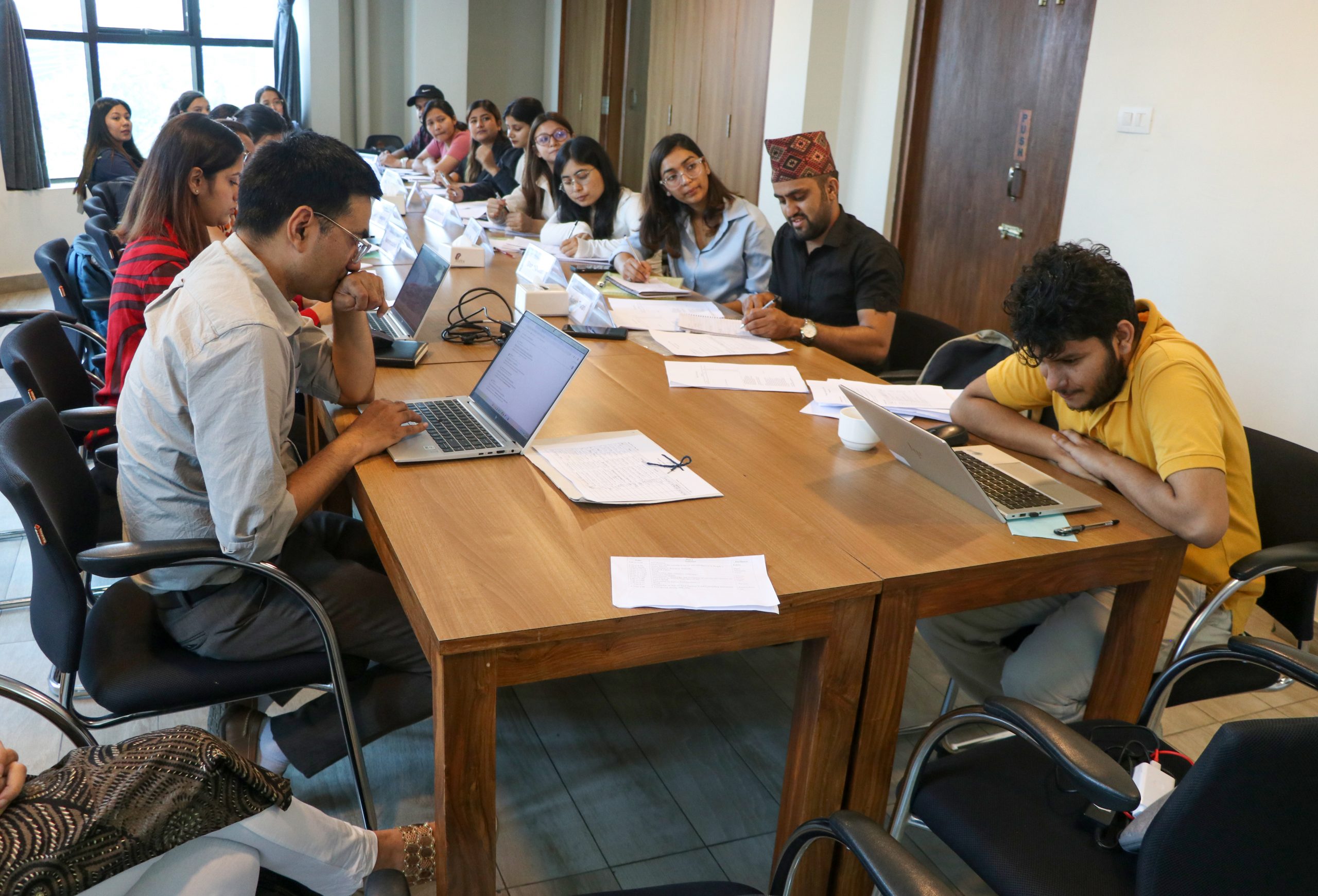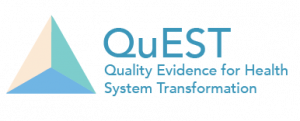Healthcare accessibility is increasing worldwide as nations strive for Universal Health Coverage (UHC). However, access alone does not always translate to better health outcomes. Each year, five million people die from treatable conditions despite seeking medical care, highlighting critical gaps in the quality of care. This issue highlights the need for comprehensive assessments of health system performance that encompass both access and quality of care.
In low- and middle-income countries (LMICs), current methods for measuring health system quality often fall short, focusing primarily on specific facilities or one-time population surveys. Consequently, there is a lack of understanding regarding the broader perspectives of healthcare users. The People’s Voice Survey (PVS), developed by the Quality Evidence for Health System Transformation (QuEST) Network, aims to fill this gap. Through mobile phone surveys, PVS seeks to capture diverse user perspectives on health system performance, satisfaction, confidence, and trust in healthcare systems at a population level.
This study will implement the PVS in Nepal, targeting a wide demographic to assess their experiences and satisfaction with the health system. The insights gained will contribute to health system reforms and support Nepal’s efforts to achieve UHC, while also facilitating cross-country comparisons and learning within the QuEST Network.
Objectives
To validate the PVS tool in the Nepalese context and assess health system performance in terms of service users’ satisfaction, confidence, and trust in the health system.
Methodology
This study employs a mixed-methods approach, integrating qualitative and quantitative research designs. In-depth cognitive interviews will be conducted to validate and contextualize the survey tool. Participants from diverse backgrounds in rural and urban communities will assess the clarity, relevance, and cultural appropriateness of the survey items. Following this, a telephone-based cross-sectional survey will be conducted among a representative sample of Nepalese residents aged 18 and above. The study aims to complete 2000 interviews using a list of randomly generated phone numbers using Kobo Collect. The survey will capture various dimensions of health system performance, including service satisfaction, confidence, and user trust.
Expected Outcomes
The research is expected to yield robust measures of health system satisfaction, confidence, and user experience in Nepal. Key outcomes include:
- Detailed insights into healthcare perspectives across different socio-demographic groups.
- Identification of inequities in healthcare experiences.
- Evidence-based recommendations to enhance healthcare delivery and inform policy-making.
Associated Team Members
Achyut Raj Pandey
Consultant - Health System ResearchMr. Achyut Raj Pandey is a public health researcher with over a decade of experience in health systems, policy, and operational research. He holds a Master’s in Public Health and is currently a PhD scholar at the Bergen Centre for Ethics and Priority Setting in Health, University of Bergen. He previously served as a Senior Research Fellow at HERD International and as a Senior Research Advisor for the FCDO-funded MEOR project, both involving close collaboration with Nepal’s Ministry of Health [...]
Learn moreSushil Chandra Baral
Managing DirectorDr. Sushil Chandra Baral is an experienced health and development expert with over 25 years of experience in research and development. Specializing in health systems, health policy, and planning at both national and international levels, Dr. Baral has played a pivotal role in communicable disease control, specifically Tuberculosis. He serves as a Managing Director at HERD International. In the past, he worked as a Strategic Advisor for the Nepal Health Sector Support Programme demonstrating expertise in program-based operational research and [...]
Learn moreBipul Lamichanne
Senior Research OfficerBipul Lamichhane is a dedicated and experienced public health professional based in Kathmandu, Nepal. He holds a Master’s degree in public health from Western Sydney University in Australia. With a diverse background encompassing nutrition, disaster management, immunization, and health budget planning, Bipul has established himself as a versatile expert in the field of public health. Bipul’s recent contributions involve his substantial support in the successful implementation of projects such as School AMR, Action Plan Development for NENAP IP, FAB-HPSRIs, and [...]
Learn moreShophika Regmi
Senior Manager: Health System Research, Evaluation and LearningShophika Regmi
Senior Manager: Health System Research, Evaluation and LearningAppointed as the lead for Systems, Policy and Programme Department Ms. Shophika Regmi has been working in health and social research for more than a decade. Throughout this period, she has led research projects of various natures and scales, particularly in the health sector. She possesses extensive experiences in implementation research using participatory action approaches, designing and executing evaluation studies, national level surveillance study, and large-scale survey across diverse areas such as health system strengthening, urban health, health workforce, non-communicable [...]
Learn moreBishnu Prasad Dulal
Lead- Information System and Population ServiceAppointed as the lead of MEL and Data Analytics Department Mr. Bishnu Prasad Dulal is an experienced Health Information System expert, Data Analysis and Research Design specialist with 18 years of experience. With a master’s degree in Population Studies from Tribhuvan University, Mr. Dulal brings knowledge and skills to the field of health information systems and research. His expertise lies in the areas of health information system strengthening, public health research, monitoring and evaluation, proposal writing, data management and analysis, [...]
Learn moreSitashma Mainali
Research AssistantMs. Sitashma Mainali is a public health professional with a bachelor’s degree in Public Health from Pokhara University. She began her professional career as an intern at Karuna Foundation Nepal, where she immersed herself in various facets of health programming, gaining invaluable experience in program design and implementation. Her exposure to M&E practices equipped her with the skills to assess program effectiveness and make data-driven decisions to optimize outcomes. She has also developed proficiency in research methodologies, conducting literature reviews, [...]
Learn moreParash Mani Sapkota
Research OfficerMr. Parash Mani Sapkota is a public health graduate from Tribhuvan University who is passionate about excelling in the field of public health. Mr. Sapkota embarked on his professional journey as an intern at HERD International, progressing to a full time role where he has accumulated two years of valuable experience as a researcher. Mr. Sapkota’s expertise lies in data management and analysis. As a young professional, he finds himself captivated by the world of health informatics and data science, [...]
Learn moreProject Location
Similar Projects
A short term project to monitor the activities of UNICEF interventions in the earthquake-affected districts to help UNICEF perform ...
Background TDR, the Special Programme for Research and Training in Tropical Diseases, hosted at the World Health Organization in ...
Introduction Nepal is in the process of institutionalizing federalization. Three tires of government, as per the new structure, ...
Understanding the policy environment, people’s perception and use, and co-creating intervention for labelling of SSBs to reduce ...
Reaching the unreached with family planning services … The UK Department for International Development (DFID) and the United States ...
Monitoring and Evaluation of Remote Areas Maternal and Newborn Health Pilot (RAMP), Taplejung This was a pilot project ...
Background The growing numbers of urban poor around the world face several health challenges including the double burden of diseases, ...
Innovation Fund is the scheme provisioned by CHORUS Research Project Consortium. The fund is targeted to early and mid-career ...
Background UNICEF’s Acute Respiratory Infection Diagnostic Aid (ARIDA) project was initiated as a response to the call for better ...
Background The growing numbers of urban poor around the world face several health challenges including the double burden of ...








